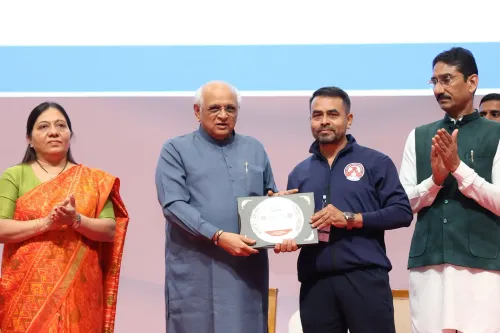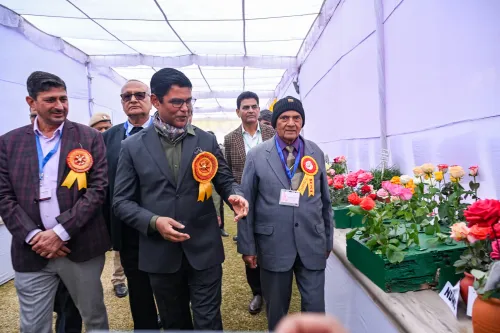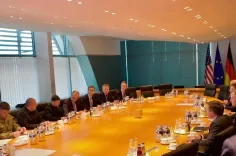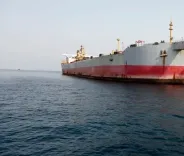Is Cash-Strapped Pakistan Relying on China's Generosity for Military Supplies?
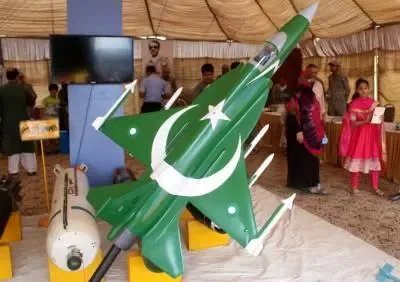
Synopsis
Key Takeaways
- Pakistan's military reliance on China is increasing.
- China supplies 81% of Pakistan's military imports.
- JF-17 Thunder is crucial for Pakistan's air force.
- China offers flexible financing for military hardware.
- CPEC plays a role in enhancing military capabilities.
New Delhi, May 8 (NationPress) In light of the recent cessation of arms supplies from the US to Pakistan due to the shifting geopolitical landscape in Afghanistan, the financially struggling Islamabad is increasingly depending on China to bridge this gap.
Data from the Stockholm International Peace Research Institute (SIPRI) reveals that China has become the primary provider of military equipment to Pakistan, supplying up to 81 percent of the nation's total imports, with the Netherlands contributing 5.5 percent and Turkey 3.8 percent.
Turkey is also solidifying its role as a close ally of Pakistan. Turkish President Erdogan has voiced support for Pakistan amid escalating tensions with India following Operation Sindoor.
From China's perspective, Pakistan plays a vital role in its geopolitical strategy aimed at countering India and ensuring access to the Arabian Sea through the Gwadar port. Once reliant on US aid to sustain its economy, Pakistan is now turning to China for both economic and military backing.
China provides low-interest financing and adaptable payment options, enabling Pakistan to procure military equipment even as its economy teeters on the brink of collapse.
Between 2019 and 2023, arms imports from China were valued at $5.28 billion, making up 63 percent of Pakistan's total arms imports, according to SIPRI data.
The China-Pakistan Economic Corridor (CPEC), a component of the Belt and Road Initiative, is a significant source of funding for Pakistan from China. This initiative, worth approximately $60 billion, also aims to safeguard Chinese investments and personnel in the project areas.
Pakistan has received a variety of military hardware from China, including fighter jets for its air force, submarines and frigates for its navy, and artillery systems for the army.
The JF-17 Thunder fighter jet, a flagship product of China-Pakistan military collaboration, has become a cornerstone of the Pakistan Air Force following the halt of US supplies of F-16s.
Since production began in 2007, the JF-17 continues to be delivered with upgraded variants. The total investment in the JF-17 program is estimated between $2–3 billion.
In 2015, Pakistan placed an order for eight Type-041 Yuan-class conventional submarines from China, with four to be constructed in China and four under license in Pakistan at the Karachi Shipyard. The delivery timeline for these submarines is set from 2022 to 2028, with the deal valued at $5 billion.
Additionally, Pakistan has acquired Chinese SH-15 155mm self-propelled artillery guns to be deployed near the Indian border.


